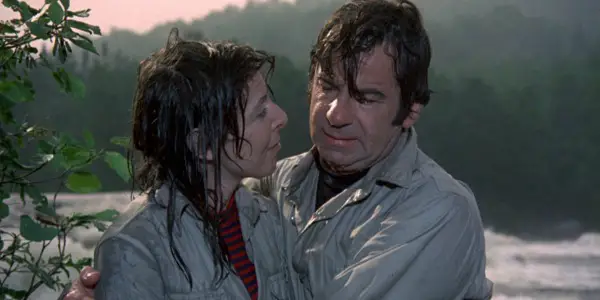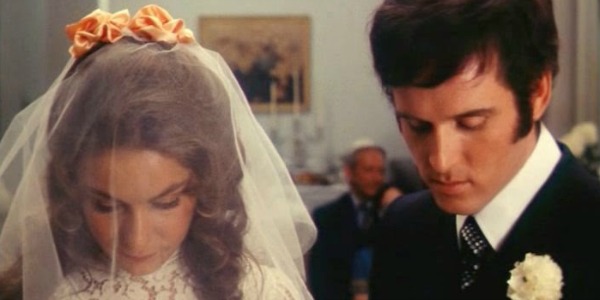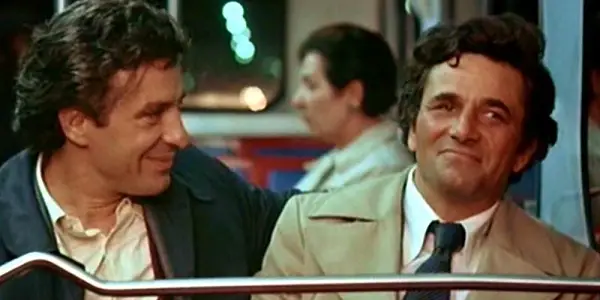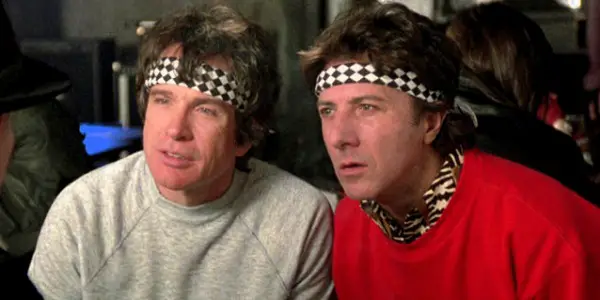The Beginner’s Guide: Elaine May, Writer & Director

Amanda Mazzillo is a writer with an MFA in Dramatic…
Elaine May has worked in the film industry for many years, in various ways. She has a small, but varied filmography, including work directing, writing, and acting. Her work has inspired filmmakers, especially women wanting to show their vast talents in an industry dominated by men.
Personally, Elaine May has been a huge inspiration for me, as a woman who wants to express her comedic voice. May‘s career is one of vast diversity, but with a singular voice, which never gets lost in any projects on which she works.
During the 1950s, Elaine May was in a comedy duo with Mike Nichols. They performed comedy routines under the name Nichols and May. After this partnership came to an end, Elaine May found a career as a screenwriter, director, and actress. Her work as a comedian alongside Mike Nichols left a lasting impression on the comedy world, lending inspiration to many young comedians of the time, including Steve Martin and Lily Tomlin.
A New Leaf: an Exploration of Romantic and Dark Comedy Tropes
Elaine May‘s debut film, coming off her time as an improvisational comedian, was the 1971 dark romantic comedy, A New Leaf , based on the short story The Green Heart by Jack Ritchie. Her work as writer, director, and star made this film a memorable satire of high society. The darkness of the film made the romance more interesting and unique.
The basic plot of the film could easily have become an average romantic comedy, but exploring the darkness of the story made it something memorable. Instead of glossing over the elements of murder, hatred, and despair, the film utilizes these in order to create engaging characters, who captivate you throughout the entire film.

This film revolves around Walter Matthau as Henry Graham, a wealthy playboy who has run through his inheritance. Elaine May plays Henrietta Lowell, a botany professor and heiress. Their relationship develops, as he tries to marry her, in order to get close to her fortune. Murder is always lingering in his mind, as he takes charge of more and more aspects of her life. As the film progresses, we see their relationship changing from one based on societal expectations of wealth to a relationship based on helping each other, and maybe deep down feeling some small form of love.
This film impresses me in the way that it flits between genres, creating something dark, yet oddly heartwarming and romantic. Elaine May‘s work in crafting this film was an amazing start to a wonderful career. Her performance as the painfully shy Henrietta brings it to the next level.
The awkwardness of her character against the backdrop of high society helps to push the satire into the foreground, making the audience see the difference between Henrietta’s passion for her work and Henry’s obsession with status, never really knowing what makes him happy.
The Heartbreak Kid: An Exploration of Self Importance
After her work on A New Leaf, May took on the job of directing the 1972 film The Heartbreak Kid, from a screenplay written by Neil Simon. The inspiration for this film was the short story, “A Change of Plan”, written by Bruce Jay Friedman. The film went on to be a huge critical hit, making its way onto lists of great comedy films.
Elaine May did a wonderful job of directing this film, which could easily have been an average misogynist romantic comedy, into something exploring relationships in a nuanced and satirical way. The dark comedy of this film does not quite reach the same levels as May‘s film, A New Leaf, but the elements of darkness help bring out the essence of The Heartbreak Kid.

Instead of this being a film following a man and his annoying wife, we are given an exploration of relationships and human behavior. Charles Grodin‘s performance as Lenny Cantrow is less focused at making him a likable lead than at showing how men think they are automatically better than their female counterparts. This film follows a man, who decides he wants out of a marriage after only five days.
Jeannie Berlin, Elaine May‘s daughter, plays Lila, Lenny’s wife who he gets dissatisfied with over the course of their short marriage. Jeannie Berlin brings a warmth and honesty to the character, which adds depth to the rather simple story of a man cheating on his wife. She becomes the heart of the film by showing a distance between her actions and how fiercely they upset Lenny.
This film could easily have painted Lila as a grossly exaggerated stereotype of a controlling wife. Instead, we see a woman who wants her life to work out. We feel sorry for her, and we want her to be happy away from a man who lets trivial differences break up a relationship.
The humor in the film doesn’t come from all the little things Lila does that drive Lenny mad. In a lesser film, this would be the case. Most of the humor comes from how Lenny is so far removed from reality that he doesn’t see how terrible he’s acting. We laugh as he tries to rationalize being a terrible person. Even as he follows a girl across the country after she rejected him, he still remains confident in his self-important view of the world.
As he convinces himself he is in love with Cybill Shepherd‘s young and seductive character, Kelly Corcoran, we see him starting to exhibit traits similar to what he disliked seeing in Lila. This shows how irresponsible he feels for his own actions. He spends the film blaming others, never placing any blame on himself. He hopes everyone else sees a man in love, not a man chasing after anything he can’t have.
After everything, Elaine May ends the film with an unforgettable shot of Lenny’s dissatisfaction with a choice he thought would ultimately make him happy. Ending the film this way pushes forward the idea that the audience is not supposed to want Lenny to have a happy ending. Showing him being unsatisfied with the life he thought was his destiny shows how this character was shallow and self-involved throughout the entire film.
Mikey and Nicky: An Update of a Classic Genre
Mikey and Nicky (1976), Elaine May‘s take on the classic gangster film is often heartbreaking, hilarious, and memorable. Her use of dark comedy works wonders in a film such as this. Comedy comes from places you least expect, leaving you wanting more and wondering why it all works so well in a genre based in such a dark world.
The film follows best friends, Mikey (Peter Falk) and Nicky (John Cassavetes), as they plan Nicky’s escape after he stole money from his mob boss. Throughout the film, Mikey is helping Nicky escape, while a hit man, Kinney (Ned Beatty) is following their trail.

As the film goes on, Mikey and Nicky must confront their friendship, complete with all their issues surrounding betrayal, childhood memories, and regret. The film follows them through the night, as Nicky constantly changes the plan, pulling them in all sorts of directions.
Elaine May utilized three cameras, which she left running for hours at a time, to capture moments of Falk and Cassavetes interacting. This helped the feeling of honesty and truth to the friendship presented in the final cut of the film.
In addition to directing, May wrote this film, which comes across especially well in the moments of dark comedy. The subject matter of the film is dark, yet the ease of which the lead characters discuss all sorts of problems helps bring forward the natural comedic value of conversation.
While watching this film, I laughed aloud numerous times, even though the film is more dramatic in nature. I also cried near the end, because I felt like I had gotten to know the characters, because their friendship, emotions, and lives were so naturally depicted.
Filming interactions with Falk and Cassavetes helped create the realistic atmosphere of the film, as well as capturing moments of comedy, in a film which could have been overly dark. The conversations about their childhood were especially wonderful, since we could understand what made these two so scared of the betrayals to come. We could see how they were the only ones left, who truly understood what happened in their childhood.
Seeing Mikey talk to his wife about everything Nicky knew about his childhood, and realizing he never told her any of these stories and she didn’t seem to care all that much, brought the situation of Mikey and Nicky’s friendship to the light.
This film might have been a failure because of how Elaine May went about directing it, but she ended up with something I won’t soon forget. Her attention to detail should be remembered and appreciated. She has the skill and passion of many respected auteur filmmakers, but was instead called too demanding and pushed aside by the studios for which she worked.
Ishtar: An Underrated Comedic Achievement
After writing the screenplay for Heaven Can Wait with Warren Beatty, he suggested giving her a chance as the writer and director of Ishtar (1987). This was the first film May directed since Mikey and Nicky, which was a box office failure.
Ishtar ended up being another box office failure, and all the responsibility ended up on Elaine May‘s shoulders. If you have been nervous of seeking out this film, I hope you can overcome that, because it is wildly entertaining, especially in its first act, which introduces us to the main characters and their lounge singing and songwriting lifestyle. The finished film is much better than all the production trouble and box office failure would lead you to believe. The songs Paul Williams wrote to be intentionally bad were humorous in their lyricism.
May being stuck with the majority of the blame for its failure, while hiding the tension and grudges the studio had against its stars perfectly captures the time period, and how easily one man can sabotage a woman’s career.

The film focuses on two unsuccessful lounge singers, Chuck Clarke (Dustin Hoffman) and Lyle Rogers (Warren Beatty), who get wrapped up in a plan to overthrow the Emir of Ishtar. The film is often hilarious, as the two bumbling lounge singers get caught up with the CIA and a group of guerrillas, who oppose the government of Ishtar, but the film is at its best when Chuck and Lyle are in New York, struggling to make it as songwriters.
This film does not deserve all the bad press surrounding it. Elaine May helped craft a fun film with the spirit of old Bob Hope and Bing Crosby films. Casting Warren Beatty as the bumbling one of the duo and Dustin Hoffman as the ladies man was a wonderful choice, going against what the audience would expect.
Conclusion
Elaine May‘s career expanded many genres, yet her unique style and tone remained present in every film for which she was involved. Her ability to capture honesty and comedy through explorations of relationships is unparalleled. I hope she decides to direct or write again, but at least she gave us a few wonderful films to enjoy. Her last time directing a feature film was 1987’s Ishtar. Her last screenplay credit was 1998’s Primary Colors. She recently came out of acting retirement to star in the Amazon Original Series, Crisis in Six Scenes.
Have you seen any Elaine May films? If so, which ones are your favorites, and are you going to seek out more of her work as a writer, director, and actress?
Does content like this matter to you?
Become a Member and support film journalism. Unlock access to all of Film Inquiry`s great articles. Join a community of like-minded readers who are passionate about cinema - get access to our private members Network, give back to independent filmmakers, and more.
Amanda Mazzillo is a writer with an MFA in Dramatic Writing from SCAD and a BA in Writing & Linguistics and Film Studies minor from Georgia Southern University. She enjoys writing comedy and exploring all forms of media. Her Twitter name is a bad pun: @mazzillofirefox













